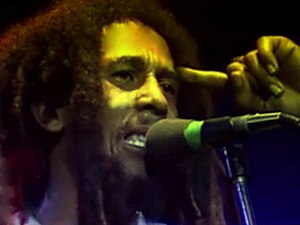Musical acts that open for big name performers, to use a Rodney Dangerfield phrase, ‘don’t get no respect.’ That’s mainly because the audience is so anxious for the headliner to take the stage that they mostly ignore the opening act.
I wasn’t paying much attention to the opening act when [simpleazon-link asin=”B00864489G” locale=”us”]Rebirth[/simpleazon-link]’s Rivers Crossed Tour stopped at Howard Theater in the Nation’s Capital a few weekends ago. And even after local reggae music radio host and show MC, Tony Carr, introduced him, I wrote the performer’s name incorrectly. But [simpleazon-link asin=”B004B6MY94″ locale=”us”]Lost Between[/simpleazon-link], a 23-year old acoustic guitarist from Washington State, got my attention.
With a voice that sounded like cigarette smoke had induced its huskiness, Tucker sounded older than his years, especially on his plaintive rendition of [simpleazon-link asin=”B000PHX4VA” locale=”us”]The Police[/simpleazon-link]’s, Roxanne. Tucker performed several of his own songs, including the catchy, Cool Kids, before leaving the stage for the headliner.
Jimmy Cliff, Bongo Man a Come!
Tucker got our attention but the evening belonged to Jimmy Cliff. The reggae master came on stage chanting, Bongo Man a Come, his powerful tenor backed by the syncopated rhythms of the Nyabinghi drums. The enthusiastic crowd of fans young and old, inside the theater seemed to double in size as everyone rose to their feet to chant, to celebrate the Bongo Man, who had finally arrived.
Cliff, whose career spans almost 50 years, was on a cross-country tour to promote his latest album, Rebirth, which won the singer a Grammy award earlier this year. He has also been celebrating the 40th anniversary of the release of the iconic reggae film, [simpleazon-link asin=”B000BT9966″ locale=”us”]The Harder They Come (DVD + CD)[/simpleazon-link], which exposed him to a new audience and helped take reggae beyond Jamaica’s shores.
Starting with the early days, Cliff led the audience decade by decade through a musical career that included ska, rocksteady, and roots reggae, introducing each song with the back story most people probably didn’t know.
I had no idea, for example, that two different political groups had used his song, You Can Get it if You Really Want. Though he didn’t name names, it wasn’t difficult to find out that he was referring to the Sandinista National Liberation Front and the Conservative Party in Britain.
Cliff underscored his clear disregard for politics (his explanation of the meaning of politics, poli-many, tics-a blood sucking animal, brought thunderous applause) before performing his protest song, Vietnam, which he renamed, Afghanistan.
Cliff got his start with Leslie Kong and acted as Kong’s unofficial A&R manager bringing in singers like Desmond Dekker, who recorded his first hit, Honor Your Father and Your Mother. When Dekker introduced Bob Marley, Cliff got him to cut his first songs, Judge Not and One Cup of Coffee, with Kong’s label, Beverley’s Records.
Of the film, The Harder They Come, Cliff said that producer Perry Henzell convinced him to take the starring role of Ivan by telling him that he was a better actor than a singer. Cliff’s performance was raw and energetic, and the film turned several of the songs, like Many Rivers to Cross, Sitting here in Limbo, and You Can Get it if You Really Want, which the singer wrote, into hits.
Cliff’s penchant for musical experimentation might have made him difficult to package and probably because of that, blockbuster success, like that of a Bob Marley, for example, eluded him. And songs, like Let Your Yeah Be Yeah, that he recorded first became hits for other groups.
Cliff ended his first set, which lasted over an hour, with The Harder They Come but cheers from his adoring fans brought him back to the stage with I Can See Clearly Now, from the movie, Cool Runnings, and You Can Get it if You Really Want. Reggae Nights and Johnny You Too Bad ended the show.
At 65, Cliff performed with the energy and enthusiasm of someone younger. It was my time seeing him in person, and I was not disappointed.
Photo of Jimmy Cliff from Wikimedia.















